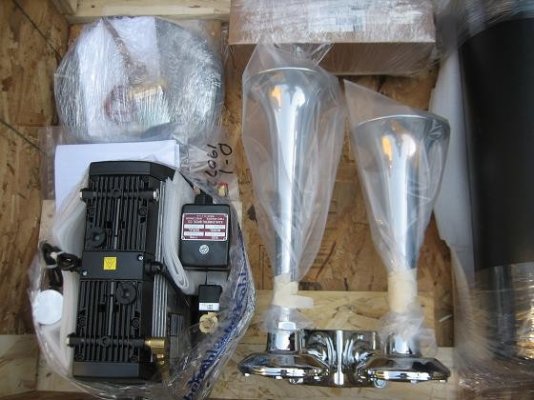7tiger7
Senior Member
- Joined
- Jan 16, 2011
- Messages
- 239
This may seem like a basic question...
But I've never owned a boat that had a generator aboard.
Few questions...
Can I run the generator to charge my batteries, then run my lights/appliances off the batteries?
Do I run the generator when I need to have a high load that would be more than the batteries can handle?
If I am running the engines daily while cruising, is that enough to keep batteries topped, or do I still need to run the generator?
If I have the boat on a mooring all summer, can I run my fridge constantly, and have the generator kick on automatically to charge the batteries and keep the fridge running?
I also have solar panels, need to sort that out.
(I can't answer too many specific questions, as I have not had a chance to go through the whole boat at leisure, we've had about 8 feet of snow in the last few weeks).
Any other advice is greatly appreciated

But I've never owned a boat that had a generator aboard.
Few questions...
Can I run the generator to charge my batteries, then run my lights/appliances off the batteries?
Do I run the generator when I need to have a high load that would be more than the batteries can handle?
If I am running the engines daily while cruising, is that enough to keep batteries topped, or do I still need to run the generator?
If I have the boat on a mooring all summer, can I run my fridge constantly, and have the generator kick on automatically to charge the batteries and keep the fridge running?
I also have solar panels, need to sort that out.
(I can't answer too many specific questions, as I have not had a chance to go through the whole boat at leisure, we've had about 8 feet of snow in the last few weeks).
Any other advice is greatly appreciated

